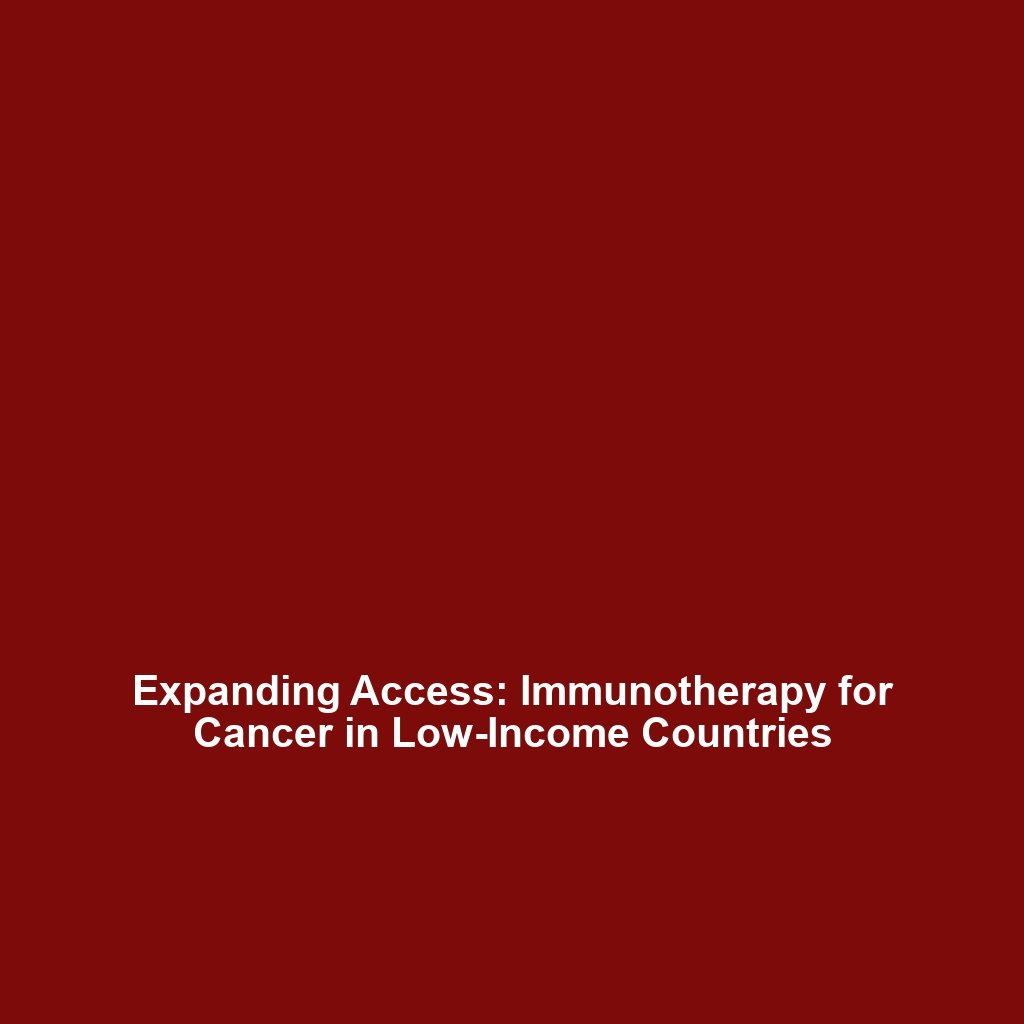History and Evolution of Immunotherapy: From Early Experiments to Modern Treatments
Introduction
The evolution of immunotherapy represents a groundbreaking journey in the field of oncology, with profound implications for cancer treatment. Beginning with early 20th-century experiments that sought to harness the body’s immune system to combat malignancies, immunotherapy has transformed into a cornerstone of contemporary cancer therapeutics. Understanding the history and evolution of immunotherapy provides valuable insights into its current applications and its potential to revolutionize treatment paradigms for cancer patients.
Key Concepts
The history of immunotherapy is characterized by several key concepts and principles, including:
- Immune Surveillance: The theory that the immune system can identify and eliminate cancer cells.
- Monoclonal Antibodies: Synthetic antibodies designed to target specific antigens on cancer cells, first developed in the 1970s.
- Checkpoint Inhibitors: Therapies that block proteins preventing the immune system from attacking cancer cells, representing a significant advancement in immunotherapy.
These concepts reinforce the significance of immunotherapy in effectively treating cancer, establishing it as a vital component of modern oncology.
Applications and Real-World Uses
Immunotherapy has many significant applications in cancer treatment, influencing patient outcomes and treatment designs. Notable examples include:
- How CAR T-cell therapy is used in B-cell malignancies: Innovative CAR T-cell therapy has shown remarkable success in treating advanced lymphomas and leukemia.
- Applications of immune checkpoint inhibitors in melanoma: Drugs like pembrolizumab (Keytruda) significantly improve survival rates for patients with advanced melanoma.
- Combination therapies: Using immunotherapy in conjunction with other treatment modalities such as chemotherapy and radiation to enhance efficacy.
Current Challenges
Despite its success, the history and application of immunotherapy face several challenges:
- Challenges of resistance: Some tumors develop resistance to immunotherapy, complicating treatment outcomes.
- Issues in accessibility: Many cutting-edge treatments remain expensive and inaccessible for various populations.
- Need for biomarkers: Identifying predictive biomarkers that can accurately determine which patients will respond to immunotherapy is still an ongoing challenge.
Future Research and Innovations
The future of immunotherapy looks promising with ongoing research and innovations, including:
- Next-generation CAR T-cell therapies: Efforts to enhance efficacy and reduce side effects are underway.
- Personalized medicine: Tailoring immunotherapy treatments to an individual’s unique cancer profile.
- Nanotechnology: Strategies utilizing nanoparticles to deliver immunotherapeutic agents more effectively to tumors.
Conclusion
The history and evolution of immunotherapy highlight a transformative period in the fight against cancer, characterized by significant advancements in treatment approaches. As research continues to unfold, the impact of these therapies on oncology will likely expand, providing new hope for patients worldwide. For more information on the latest research and developments in immunotherapy and cancer, consider exploring our other articles on related topics.


